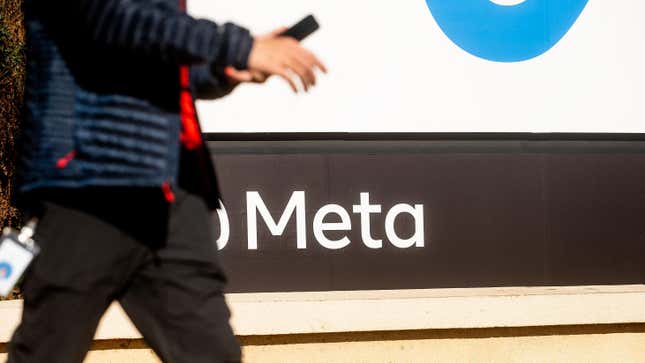
Students trying to complete last minute term papers may feel a little bit better trawling through Wikipedia for their midnight “research.” Meta announced a new artificial intelligence model that researchers claim can help make Wikipedia entries more accurate.
As first reported by TechCrunch, Meta’s new open source AI may be how the company—notably known for its issues with content moderation—better finds and snuffs out fake news or disinformation. The company’s AI team released a blog post Monday describing “Sphere,” which is reportedly capable of scanning hundreds of thousands of citations at once.
Wikipedia sees over 17,000 new articles added each month to its total repository of 6.5 million, and Meta researchers said the AI could provide a backend of support for the crowdsourced information archive’s volunteer army of editors. A representative for Wikipedia said that while Meta informed them about the project, they have established no formal partnership and this new program is not currently being used to automatically update any content on Wikipedia.
Sphere was released open source on Github, and is resourced from 134 million public web pages, according to Meta’s researchers. The stated goal is to eventually create a full-fledged platform for Wikipedia editors to more easily resolve citation issues.
The Facebook AI research team said they’ve been looking for ways to evaluate “knowledge intensive tasks,” according to a paper the team released through Cornell University last year. The team said they fed the AI system 4 million information claims from Wikipedia to help it zero in on a single good source amidst the vast number of available webpages. The researchers claim it looks for entire statements rather than individual words for relevant passages.
So what does this mean in action? A video produced by Meta AI shows the program working on Wikipedia. First the bot finds a fact, in this case a little blurb about Joe Hipp, the first Native American to win the WBA World Heavyweight title. If the bot fails to verify the information contained inside the article, it suggests an alternate citation.

“Automated tools can help identify gibberish or statements that lack citations, but helping human editors determine whether a source actually backs up a claim is a much more complex task — one that requires an AI system’s depth of understanding and analysis,” researchers wrote in their blog post.
In the blog post, Shani Evenstein Sigalov, a researcher at Tel Aviv University and vice chair of the Wikimedia Foundation’s board of trustees, said machine learning “can help scale the work of volunteers by efficiently recommending citations and accurate sources.”
A representative from Wikimedia stressed there has not been a formal endorsement of the project by the board.
So whether this works well in-process remains to be seen. The researchers say they eventually want to make this verify documents in real time while proposing citations (even better for all the last minute research projects).
Update 07/13/22 at 10:50 a.m. ET: This article was amended to add statements from a Wikimedia representative clarifying that Wikipedia is not currently using this tool and there is no formal partnership between either organization.